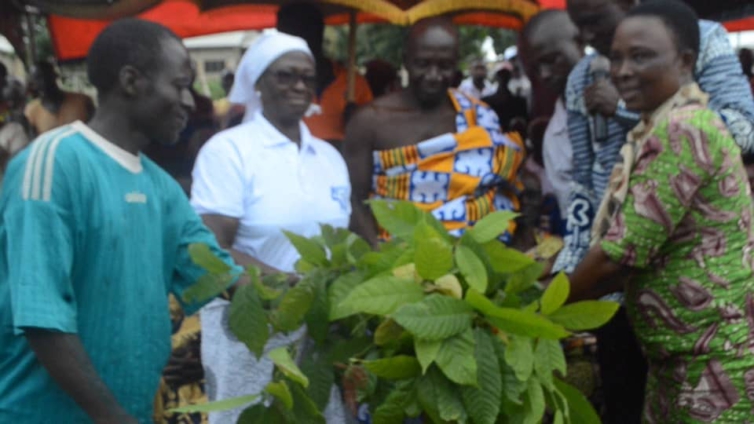Cocoa is undeniably the most important crop export commodity of Ghana, generating huge foreign exchange earnings to boost the health of the economy. Other two major traditional export commodities are gold and timber.
Its economic contribution (export earnings and job creation) can neither be over-emphasized nor underestimated. The importance of the crop has warranted many strategic efforts by the state to ensure sustainability of production. It is against this background that Ghana Cocoa Board (COCOBOD) was established to shoulder cocoa affairs in the country.
Therefore governments through COCOBOD and the Ministry of Food and Agriculture (MoFA) have over the years been supplying inputs to farmers, all in the name of ensuring sustainability of the sector. Farmers have as well received education on best cocoa farming practices, which is also very critical to enhance production.
Additionally, the ever-expanding cocoa sector has contributed to the massive agrochemical market in the country. Due to its lucrativeness, the agrochemical market has been saturated with counterfeit and unapproved products which have negative impacts on humankind and the environment.
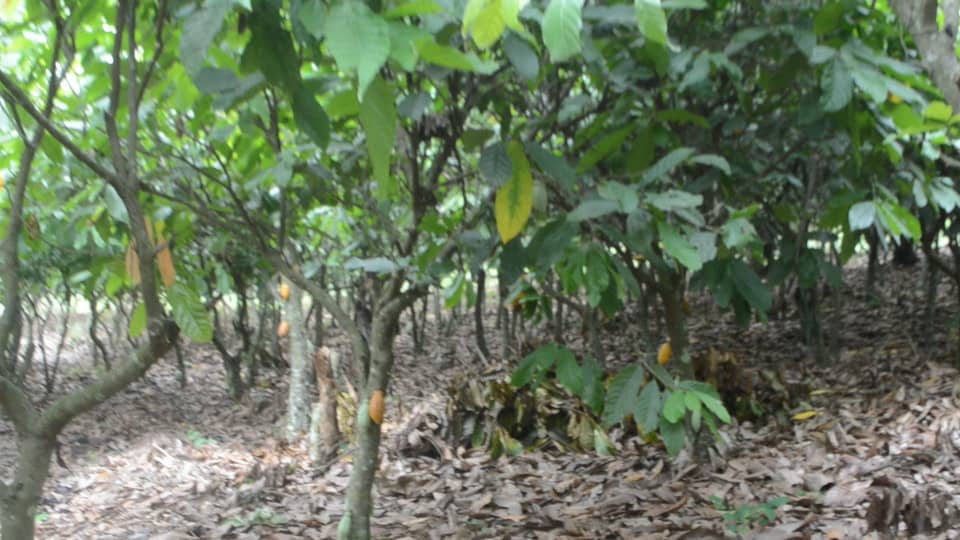
Joy News’ checks across cocoa production areas in Bono, Bono East and Ahafo regions has revealed that many farmers have been entangled in the web of these fake agro chemicals.
The use of agrochemicals is very critical in the production of cocoa, especially to control diseases, pests and weeds. This among others informed government’s introduction of the mass cocoa spraying programme but the intervention has failed to meet the needs of every farmer, hence farmers buying chemicals to spray by themselves.
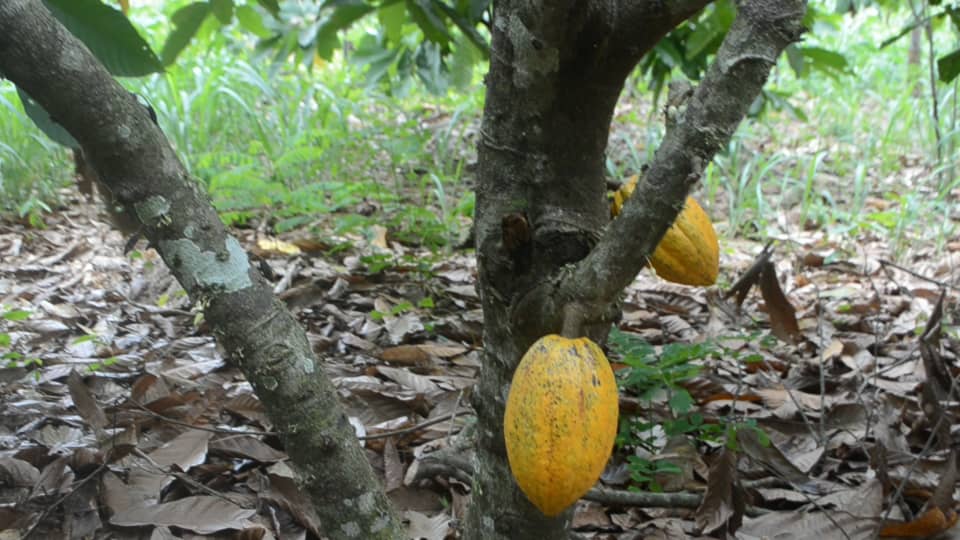
This, has created a booming market for suppliers whom ‘ignorant’ farmers rely on for the needed chemicals to supplement the mass spraying exercise. Unfortunately, some farmers lack the know-how to differentiate between original and fake chemicals. The use of fake chemicals by unsuspecting farmers could cause alarming chemical residue in cocoa, health defects to farmers and damage the environment as well.
For two decades now, 47-year-old Issah Sawadogo, has been producing cocoa in the Dormaa area. He recounted “agrochemical inputs from the government are woefully inadequate, especially for those of us who are into large scale production.
I always have to supplement suppliers from COCOBOD with purchases on the open market, making me susceptible to fake chemicals and fertilisers.
I only get to know of using counterfeit chemicals when they fail to yield the expected results.”
A middle-aged farmer at Berekum, Sulley Mustapha, on his part said: “Agrochemicals on the open market are not only expensive but their efficacy levels can’t be guaranteed.
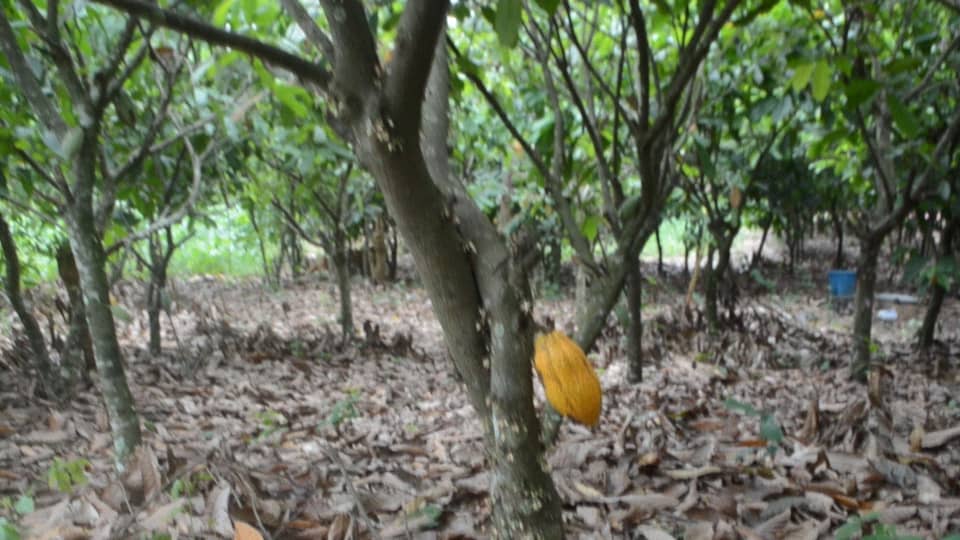
I bought a weedicide to spray a three-acre young farm but the chemical ended up killing every plant on the field.”
In this case, it was very clear that the farmer was not even aware that weedicides are not good to be used on cocoa farms. He might not be the only farmer who is oblivious of this fact. Interestingly, Mr. Mustapha was only concerned about losing the three-acre farm but not the health effects. Like many other farmers, he was not aware it could result to high chemical residue in the cocoa beans, most especially when the authenticity of the input was not guaranteed.
Fertilizer is another invaluable input in cocoa production like any other crop farming. Enduring impacts from phenomena such as unfavorable weather conditions, soil nutrient leaching, and low production levels among others have fueled the use of fertilizer by cocoa farmers. The craze for fertilizer has also influenced the yawning market for the input, thus the system being inundated by both approved and unapproved ones.
Hitherto, application of organic manure, particularly poultry droppings was the ideal choice of farmers but its bulkiness as well as shortage in supply has open the floodgates for the use of inorganic fertiliser.
In recent times, food and environmental safety advocates have been advocating the use of organic fertilizer to protect consumer’s health and the ecology. However, information gathered by Joy News in cocoa-growing areas in Bono around Dormaa and Berekum, as well as Asutifi in Ahafo, revealed that majority of farmers have diverted from the traditional system of organic manure application to excessive use of synthetic fertilizers.
Some dealers of agrochemicals who spoke on condition of anonymity admitted there were many unapproved cocoa inputs on the market and the ignorant as well as cheap products seeking farmers mostly fall prey. It was also established that there were counterfeits of COCOBOD certified inputs on the market.
Without any prejudice, some farmers are unconscious of the negative effects of inorganic fertilizers. They are mostly interested in how well their crops could grow and nothing else. However, some observant farmers intimated that the topsoil at their cocoa farms has hardened since they started using inorganic fertilizers. Besides, approved inorganic fertilizers are not easily accessible to farmers, compelling them to resort to the substandard ones.
Nana Kwadwo Benneh is a 67-year-old farmer at Nkrankwanta in the Dormaa West District. “It’s very difficult to access enough of the approved fertilizer from the designated shops. Sometimes, we have to buy from middlemen at exorbitant price. Amidst the difficulties, man has make do with other cheap ones on the open market,” he said.
Per the health benefits of organic food products and how organic fertilizers help in the maintenance of the soil moisture, it is imperative for COCOBOD and for that matter, government to support organic fertilizer producers, especially the local ones to enhance its usage in cocoa production. This will go a long way to spare the sector from the longtime adverse effects of inorganic fertilizers.
In the quest to scale up production, the COCOBOD has been supplying farmers will free improved seedlings. Generally, this exercise has been very fruitful and farmers who have received the free seedlings recounted how it has helped them to expand existing farms and new ones.
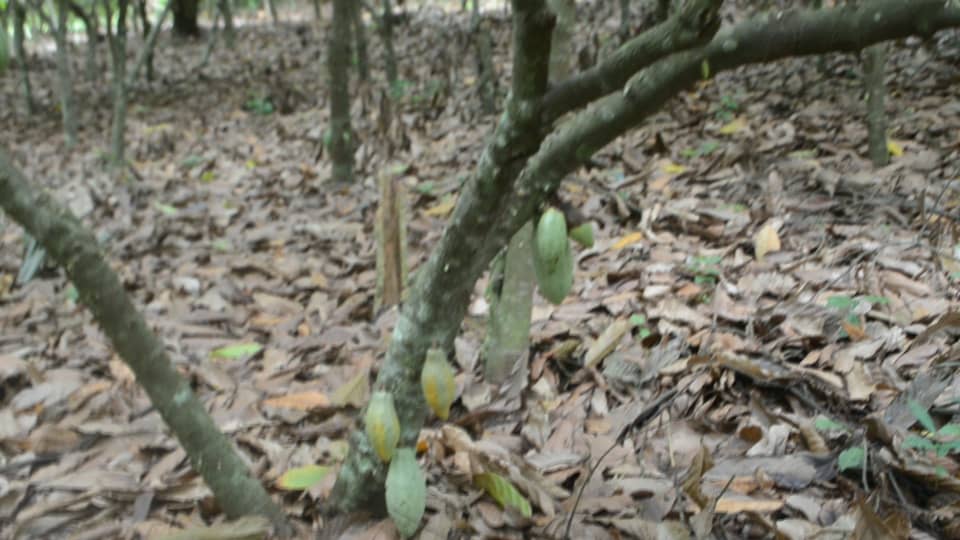
That notwithstanding, those who were yet to benefit from the free distribution of seedlings are glued to the orthodox method of planting. They sow the beans directly on the farm without nursing while the few who have nursery beds also do not manage them properly before transplanting.
The earlier mentioned Berekum cocoa farmer, Sulley Mustapha explained “I did not receive enough of the freely distributed seedlings by the COCOBOD and therefore I have to supplement with supply from my own nursery bed as well as sow directly on the farm to meet the expansion target. I learned that is not the best way to go but I have no other choice.”
A 57-year-old Ama Amoah, has been farming for the past 30 years at Mogyampa, a village in the Asutifi North District and claimed she had never received COCOBOD seedlings.
“I have only heard that government sometimes distribute seedlings to farmers but I have never received a single seedling in my entire farming life. I wash and sow cocoa beans whenever there’s the need for an expansion of farm or replacement of disease-afflicted trees,” she intimated.
The practice, according to agronomists does not help the crop to produce higher yield. If the COCOBOD wants to achieve the over one million tonne production benchmark again, then it must collaborate effectively with other allied institutions in the sector for intensive farmers’ education for them to discontinue the ‘backward’ planting style and supply them with adequate improved seedlings.
The aforementioned revelations in this write-up should be a wake-up call for all stakeholders to rise to the occasion and find practical solutions to the glitches in cocoa inputs supply and application to save the all-important industry.
Latest Stories
-
Local Government Ministry pays allowances to over 9000 assembly members
1 hour -
Telecel Ghana honoured with National Safety Award for Corporate Excellence
1 hour -
Dr. Musah Abdulai: If the Chief Justice returns: Will it lead to reset, redemption, or rupture?
5 hours -
Tano Deity dispute: Bantamahene pardoned after offering guilty plea to Asantehene
6 hours -
Dumelo inaugurates Board of Tree Crop Development Authority
6 hours -
Akufo-Addo’s office denies reports of attempting to influence upcoming NPP Delegates Conference
6 hours -
WAFCON 2024: Second half brilliance against Tanzania takes Black Queens to quarter-finals
6 hours -
Dison International School holds colourful graduation to mark academic progress
6 hours -
UMaT launches IET-GH Student Chapter with a call to engineer a better future
6 hours -
Dialysis crisis: Cape Coast Teaching Hospital struggling to keep up with demand
6 hours -
NPP must not sideline Kufuor in key decisions – Dr Asah-Asante warns
6 hours -
Afenyo-Markin under fire for ‘strange elevation’ comment to Essikado MP ‘over’ Zanetor
7 hours -
Abanga Yakubu refutes allegations of leading unauthorised anti-galamsey operations
7 hours -
Minority, Majority MPs clash over credit for Ghana’s economic gains
8 hours -
2025 NPP Congress: Kufuor, Akufo-Addo to deliver virtual address to delegates
8 hours

